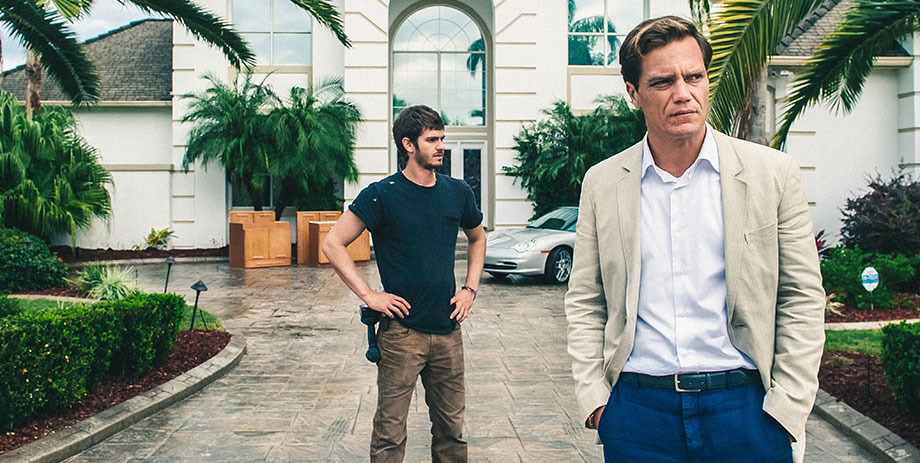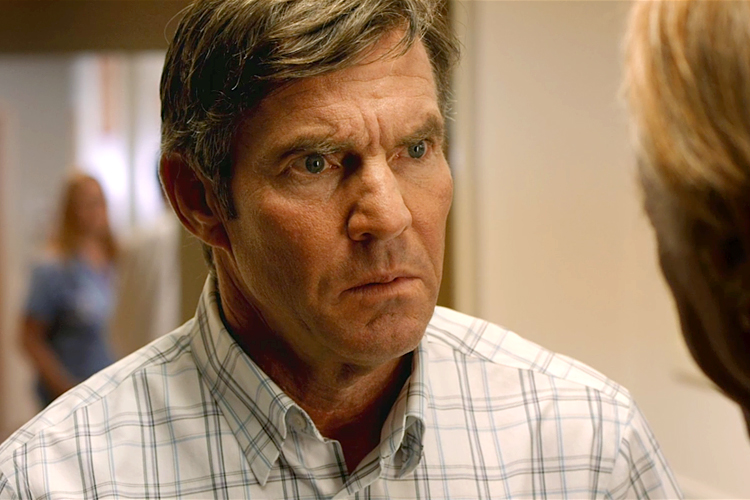
The opening scene of the brilliant psychological drama 99 Homes illustrates the life-and-death stakes of our nation’s foreclosure crisis. It’s a topical film, but 99 Homes is emotionally raw and as intense as any thriller. Dennis Nash (Andrew Garfield) is a working class single dad, down on his luck. He loses his home to foreclosure and then must make a Faustian choice about supporting his family. Can he live with his choice, and what are the consequences?
With capitalism, where there are losers, there are also winners who have bet against the losers. Rick Carver (Michael Shannon) has built a prosperous real estate business on legitimate evictions and flips, supplemented with schemes to defraud federal home loan agencies, housing syndicates and individual homeowners. His world view is defined in a monologue about this nation bailing out the winners, not the losers – a cynical, but perceptive, observation.
Director Ramin Bahrani is a great American indie director, with a knack for drilling into the psyches of overlooked subsets of our society – immigrants (Chop Shop, Man Push Cart, Goodbye Solo), industrial farmers (At Any Price) and now the victims and profiteers of the Mortgage Bubble.
As foreclosure inexorably approaches, Garfield’s Nash is absorbed by dread, then desperation and, finally, to panic. His mom (Laura Dern) takes a different tack, settling firmly into denial and then erupting in hysteria. That denial recurs again and again in 99 Homes among those about to be evicted. These are people who have bought homes and can’t believe/grok/internalize that one day they will actually be forced out of them. One of the strongest aspects of 99 Homes is the use of non-actors who have lived through the nightmare. Some of the individual stories, especially one with a confused old man, are so wrenching as to be hard to watch.
This may be Andrew Garfield’ strongest cinema performance. Dennis Nash is a decent man incentivized to do the indecent. Garfield takes this good man through an amazing internal journey. Nash is forced to accept the failure resulting from his attempts to do what is right, juxtaposed with the success from conduct that he finds repulsive. Bahrani’s arty shot of the reflection of a swimming pool shimmering in a sliding glass door makes it look like Garfield is under water – which he metaphorically is at this point in the film.
Michael Shannon, one of my very favorite actors, is superb as a guy completely committed to pursuing his own survival/prosperity strategy – no matter that it is based on ruining the lives of other humans. Unlike Nash, Shannon’s Carver has accepted the incentives to act badly and has overcome any qualms about either moral ambiguity or even stark amorality.
Veteran television actor Tim Guinee is remarkable as homeowner Frank Green. Laura Dern is excellent in a pivotal role. The character actor Clancy Brown proves once again that he can grab the screen, even when he’s only visible for a minute or two.
With its searing performances by Garfield and Shannon, 99 Homes is unsparingly dark and intense until a final moment of redemption. The DVD is available to rent from Netflix and Redbox, and 99 Homes can be streamed from Amazon Video, iTunes, Vudu, YouTube, Google Play, and Playstation Video.
https://youtube.com/watch?v=sfttvNCIJvE

